Quick Links: Table of Contents
- How Fast the Bichon Frise Can Run
- Speed of Bichon Frise Compared to Other Dog Breeds
- How Fast the Bichon Frise Can Run Compared to Other Mammals
- How to Make Your Bichon Frise Run Fast
- Conclusion on How Fast the Bichon Frise Can Run
How Fast the Bichon Frise Can Run
The American Kennel Association (AKC) and its local clubs regularly conduct timed races for dogs. This competition is called the Fast CAT®, which stands for Coursing Ability Test. The Fast CAT is a timed 100-yard (91.4 meters) race where dogs run one at a time, chasing a lure.
The AKC has been conducting Fast CAT races for dogs since 2016. You can learn more about how the rules of the fast CAT race here.
Based on our analysis of the speeds of 22 different Bichon Frises, the average speed of the Bichon Frise is 16.6 mph (26.7 kmph). The fastest speed on AKC record that the Bichon Frise ran in a race is 20.61 mph (33.2 kmph) and the minimum speed on record in a race for a Bichon Frise is 8.17 mph (13.1 kmph).
The name of the fastest Bichon Frise in the AKC record is Luvit Dalnavert Awesome Wind Storm FCAT SWA SCE SBE SHDN, a female Bichon Frise. This was the Bichon Frise that set the 20.61 mph record speed.
If it comes down to the speed of the Bichon Frise male versus the female, the average speed of the male Bichon Frise is 16.8 mph (27.1 kmph), while the average speed of the female Bichon Frise is 16.4 mph (26.3 kmph).
The fastest dog breed is the Greyhound. Greyhounds can run at an average speed of 33.1 mph (53.3 kmph).
The slowest dog breed is the Pekingese. Pekingeses run at an average speed of 9.4 mph (15.1 mph).
Click here to see the ranking of dog breeds based on their running speeds. You will see how the Bichon Frise ranks compared to other 246 dog breeds
Note that all the speeds above are average speeds over a distance of 100 yards, and not peak speeds. A dog may be able to running faster than the numbers above, but it will be for a very very short distance (time).
Unlike some AKC events such as conformation shows which a dog has to be purebred to participate in, both purebred dogs and mixed dogs can compete in the AKC Fast CAT competition.
You should consider signing up your dog for this fun activity. Your dog could win a fancy AKC title! Visit the AKC website to learn more.
You can watch an AKC fast CAT tournament here on Youtube
Speed of Bichon Frise Compared to Other Dog Breeds
Bichon Frises weigh around 7 to 12 pounds and height 9 to 11 inches tall at the shoulder.
How fast a dog breed runs depends on its weight and height. Tall dog breeds tend to run faster than shorter dog breeds.
See how the speed of the Bichon Frise compares to the speed of other dog breeds below:
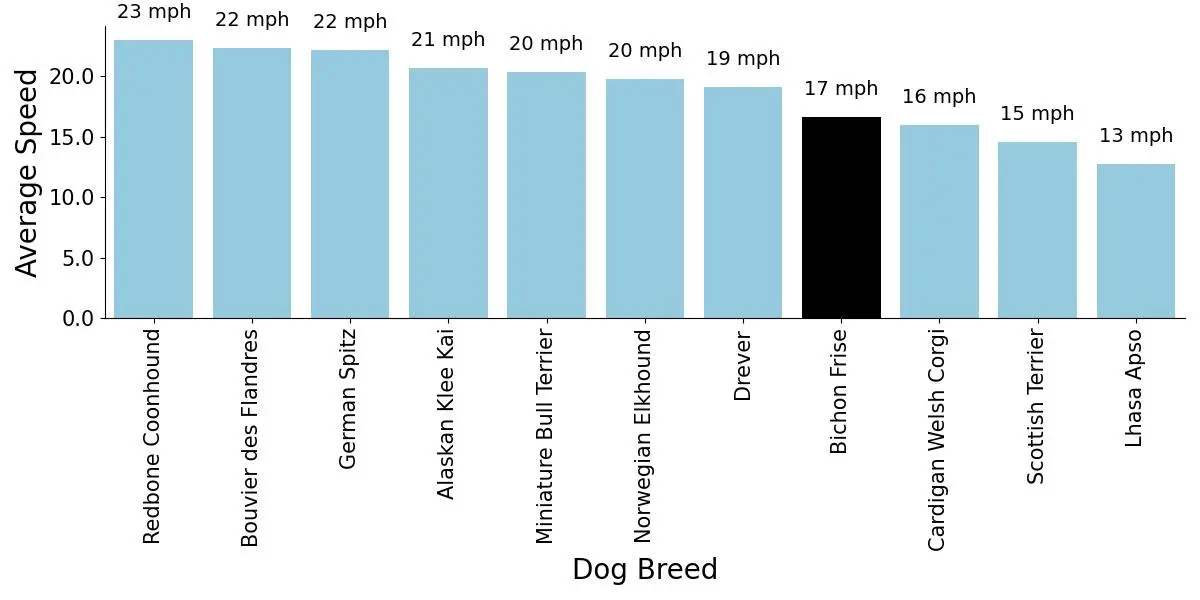
| Dog Breed | Average Speed |
|---|---|
| How Fast Rhodesian Ridgebacks Can Run | 25.3 mph (40.6 kmph) |
| How Fast Hokkaidos Can Run | 25.1 mph (40.4 kmph) |
| How Fast Pumis Can Run | 24.4 mph (39.3 kmph) |
| How Fast Xoloitzcuintlis Can Run | 24.4 mph (39.3 kmph) |
| How Fast Doberman Pinschers Can Run | 24.0 mph (38.7 kmph) |
| How Fast Irish Red and White Setters Can Run | 23.2 mph (37.4 kmph) |
| How Fast Gordon Setters Can Run | 22.4 mph (36.0 kmph) |
| How Fast Tibetan Terriers Can Run | 21.0 mph (33.7 kmph) |
| How Fast Finnish Spitzs Can Run | 19.9 mph (32.0 kmph) |
| How Fast Bichon Frises Can Run | 16.6 mph (26.7 kmph) |
| How Fast Basset Hounds Can Run | 14.4 mph (23.1 kmph) |
Read this article to learn about how fast dogs run.
Can the Bichon Frise Run Faster than the Portuguese Podengo Pequeno?
The Portuguese Podengo Pequeno can run faster than the Bichon Frise.
The average running speed of the Bichon Frise is 16.6 mph, while the average running speed of the Portuguese Podengo Pequeno is 19.2 mph.
The fastest Bichon Frise on record ran at a speed of 20.6 mph, while the slowest Bichon Frise competing in a race ran at a speed 8.2 mph.
On the other hand, the fastest Portuguese Podengo Pequeno on record ran at a speed of 26.4 mph, while the slowest Portuguese Podengo Pequeno competing in a race ran at a speed of 8.0 mph.
Can the Bichon Frise Run Faster than the Pug?
The Bichon Frise can run faster than the Pug.
The average running speed of the Bichon Frise is 16.6 mph, while the average running speed of the Pug is 15.7 mph.
The fastest Bichon Frise on record ran at a speed of 20.6 mph, while the slowest Bichon Frise competing in a race ran at a speed 8.2 mph.
On the other hand, the fastest Pug on record ran at a speed of 21.7 mph, while the slowest Pug competing in a race ran at a speed 4.3 mph.
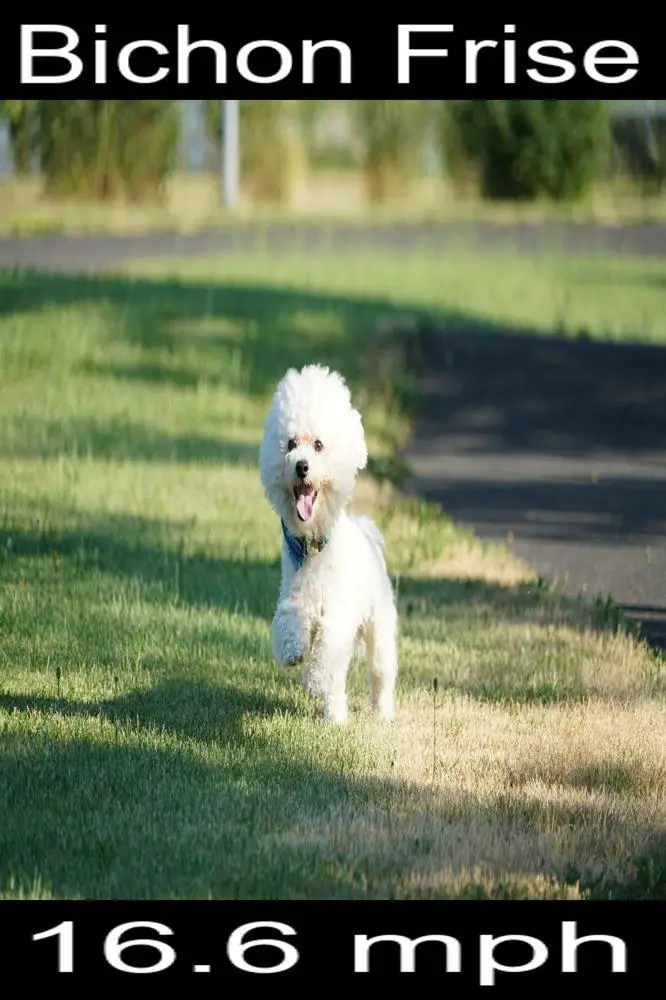
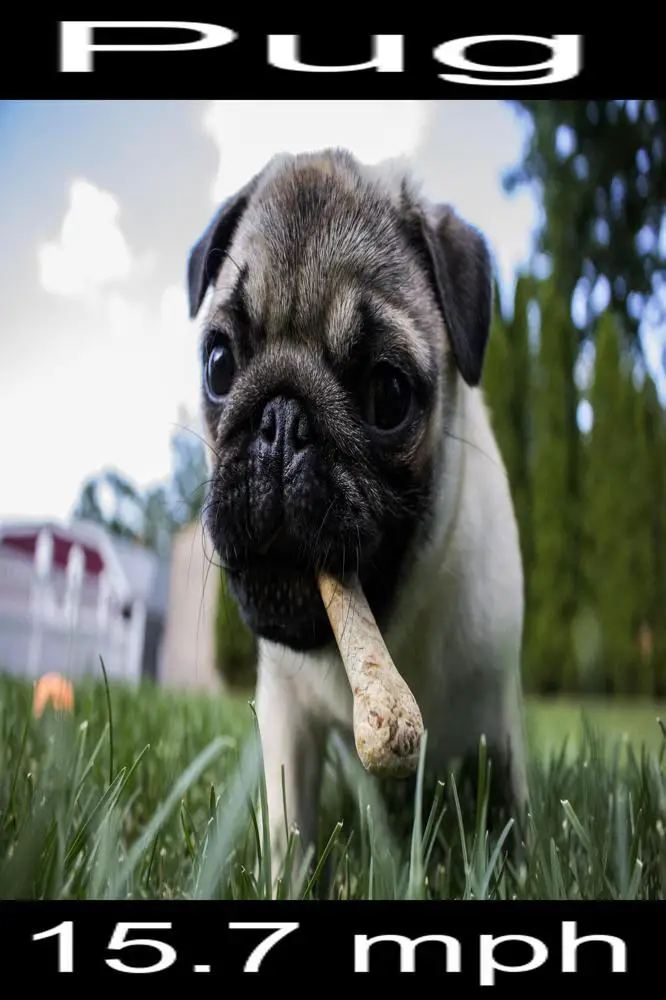
Can the Bichon Frise Run Faster than the English Springer Spaniel?
The English Springer Spaniel can run faster than the Bichon Frise.
The average running speed of the Bichon Frise is 16.6 mph, while the average running speed of the English Springer Spaniel is 22.4 mph.
The fastest Bichon Frise on record ran at a speed of 20.6 mph, while the slowest Bichon Frise competing in a race ran at a speed 8.2 mph.
On the other hand, the fastest English Springer Spaniel on record ran at a speed of 28.5 mph, while the slowest English Springer Spaniel competing in a race ran at a speed of 3.3 mph.

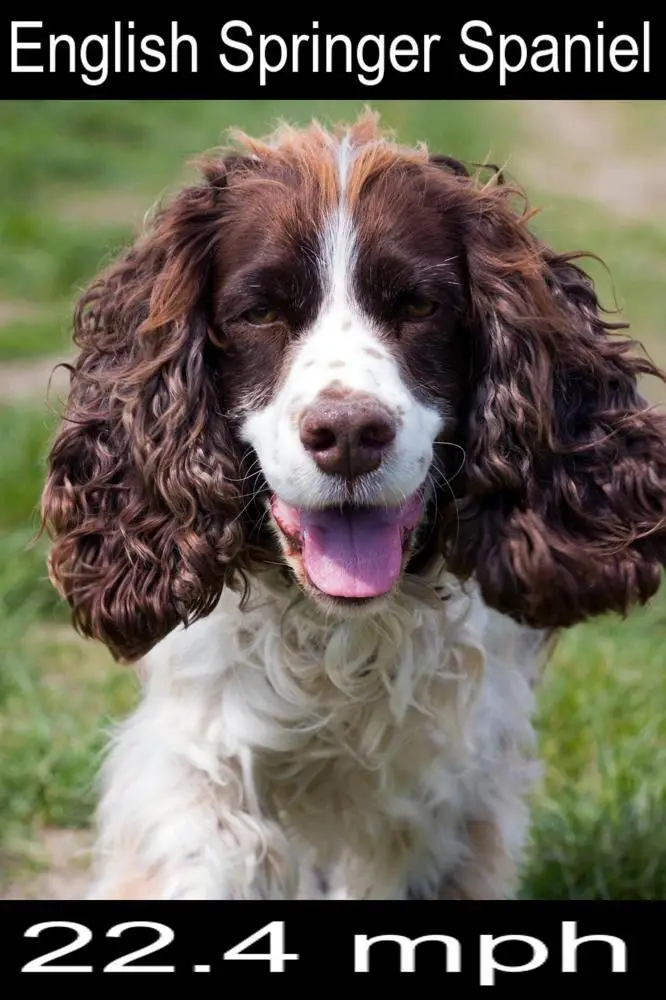
Can the Bichon Frise Run Faster than the Kai Ken?
The Kai Ken can run faster than the Bichon Frise.
The average running speed of the Bichon Frise is 16.6 mph, while the average running speed of the Kai Ken is 22.9 mph.
The fastest Bichon Frise on record ran at a speed of 20.6 mph, while the slowest Bichon Frise competing in a race ran at a speed 8.2 mph.
On the other hand, the fastest Kai Ken on record ran at a speed of 27.4 mph, while the slowest Kai Ken competing in a race ran at a speed of 6.0 mph.
Can the Bichon Frise Run Faster than the Boston Terrier?
The Boston Terrier can run faster than the Bichon Frise.
The average running speed of the Bichon Frise is 16.6 mph, while the average running speed of the Boston Terrier is 21.2 mph.
The fastest Bichon Frise on record ran at a speed of 20.6 mph, while the slowest Bichon Frise competing in a race ran at a speed 8.2 mph.
On the other hand, the fastest Boston Terrier on record ran at a speed of 27.0 mph, while the slowest Boston Terrier competing in a race ran at a speed of 12.0 mph.

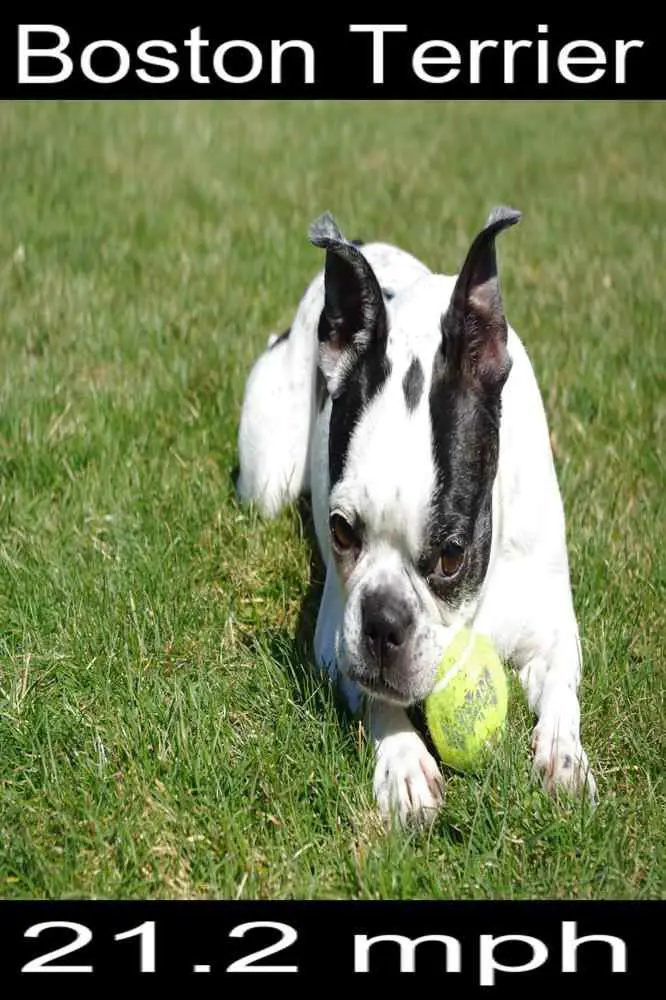
Learn more about how fast Boston Terriers can run here.
How Fast the Bichon Frise Can Run Compared to Other Mammals
See how fast the Bichon Frise run compared to other mammals below:
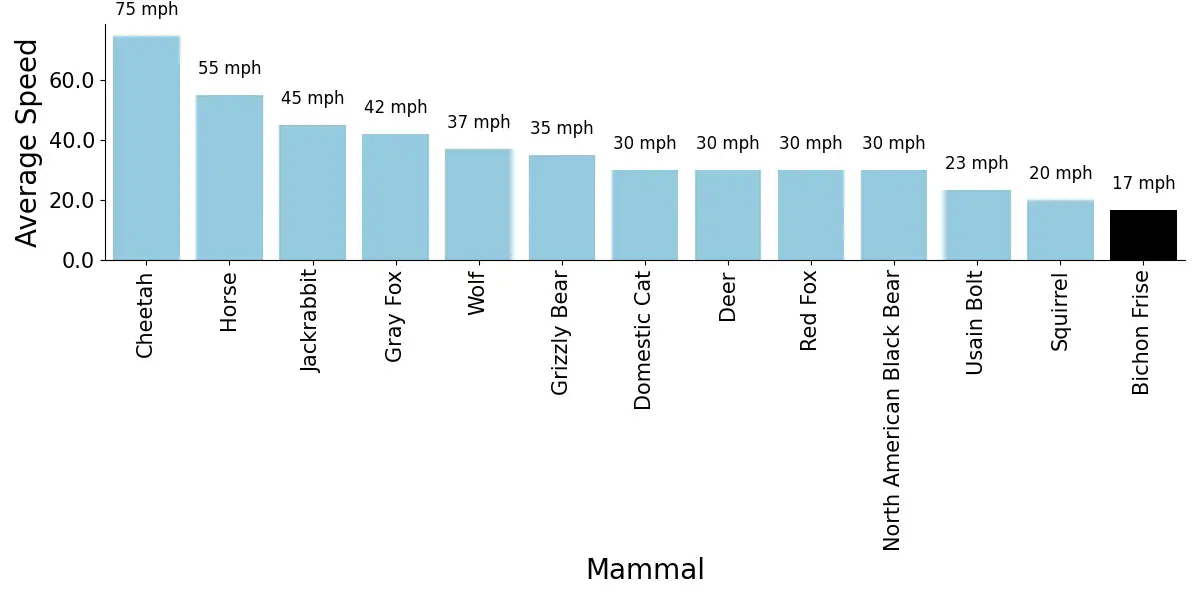
| Mammal | Average Speed |
|---|---|
| Cheetah | 75.0 mph (120.7 kmph) |
| Horse | 55.0 mph (88.5 kmph) |
| Jackrabbit | 45.0 mph (72.4 kmph) |
| Gray Fox | 42.0 mph (67.6 kmph) |
| Wolf | 37.0 mph (59.5 kmph) |
| Grizzly Bear | 35.0 mph (56.3 kmph) |
| Domestic Cat | 30.0 mph (48.3 kmph) |
| Deer | 30.0 mph (48.3 kmph) |
| Red Fox | 30.0 mph (48.3 kmph) |
| North American Black Bear | 30.0 mph (48.3 kmph) |
| Usain Bolt | 23.4 mph (37.6 kmph) |
| Squirrel | 20.0 mph (32.2 kmph) |
| Bichon Frise | 16.6 mph (26.7 kmph) |
Can the Bichon Frise Run Faster than the Usain Bolt?
The Usain Bolt can run faster than the Bichon Frise.
The average running speed of the Bichon Frise is 16.6 mph, while the average running speed of the Usain Bolt is 23.4 mph.
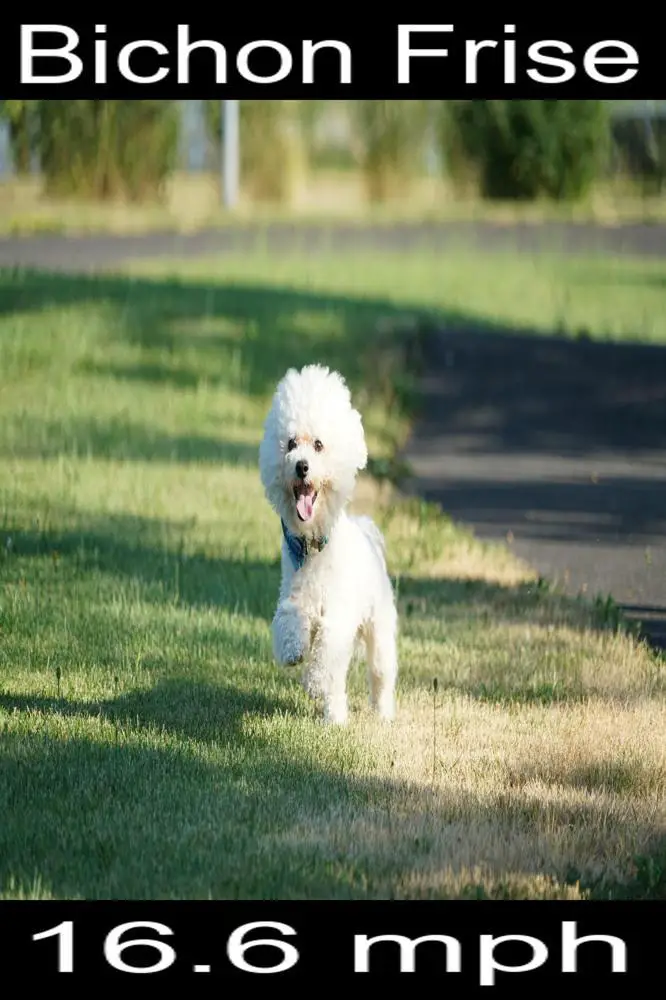
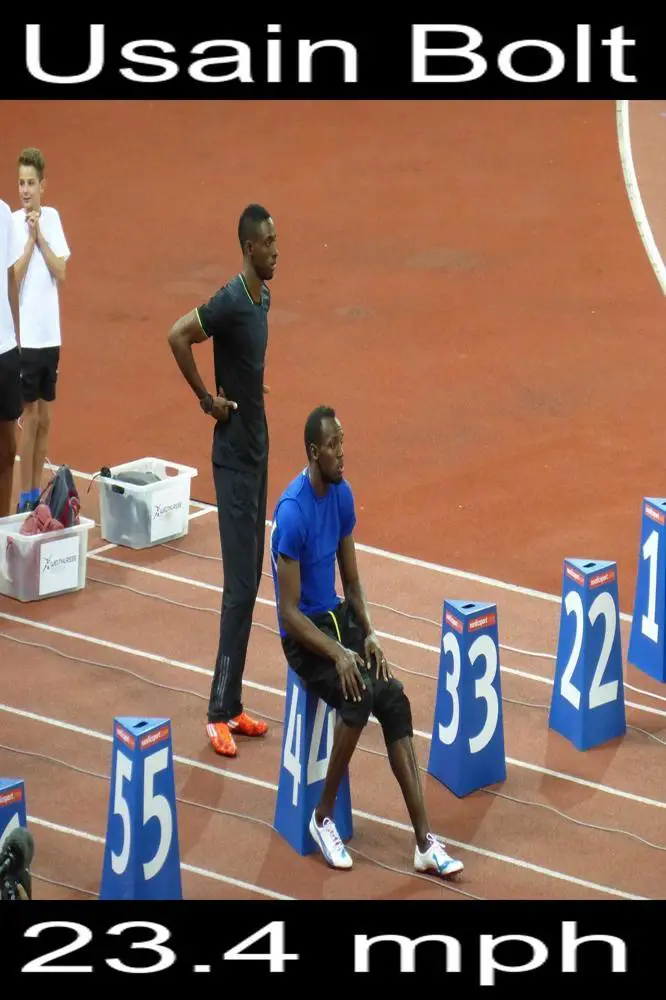
Can the Bichon Frise Run Faster than the Cheetah?
The Cheetah can run faster than the Bichon Frise.
The average running speed of the Bichon Frise is 16.6 mph, while the average running speed of the Cheetah is 75.0 mph.

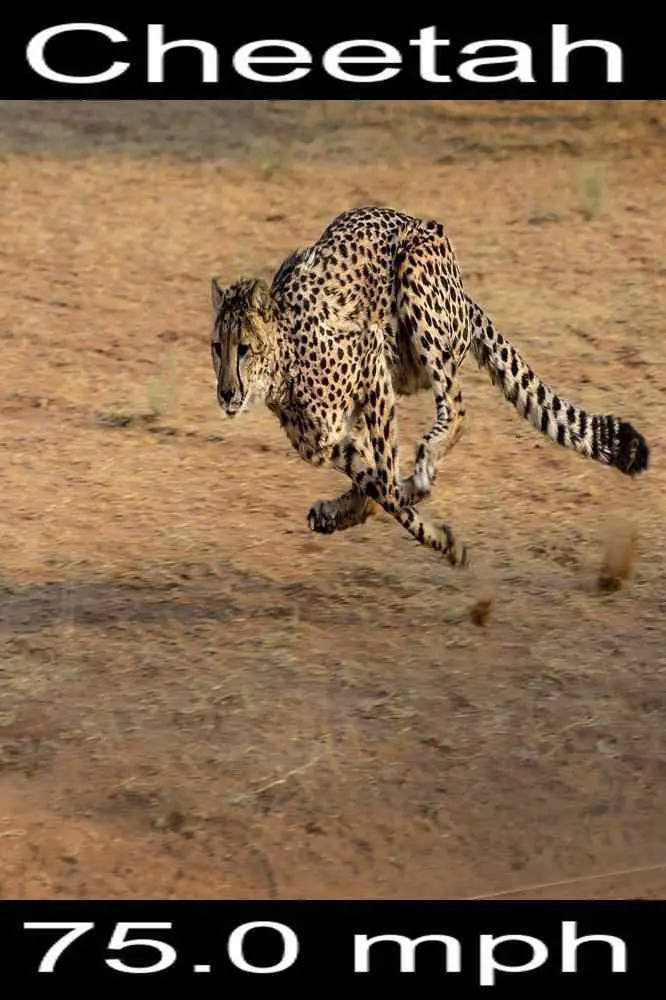
Can the Bichon Frise Run Faster than the Domestic Cat?
The Domestic Cat can run faster than the Bichon Frise.
The average running speed of the Bichon Frise is 16.6 mph, while the average running speed of the Domestic Cat is 30.0 mph.


Can the Bichon Frise Run Faster than the Squirrel?
The Squirrel can run faster than the Bichon Frise.
The average running speed of the Bichon Frise is 16.6 mph, while the average running speed of the Squirrel is 20.0 mph.

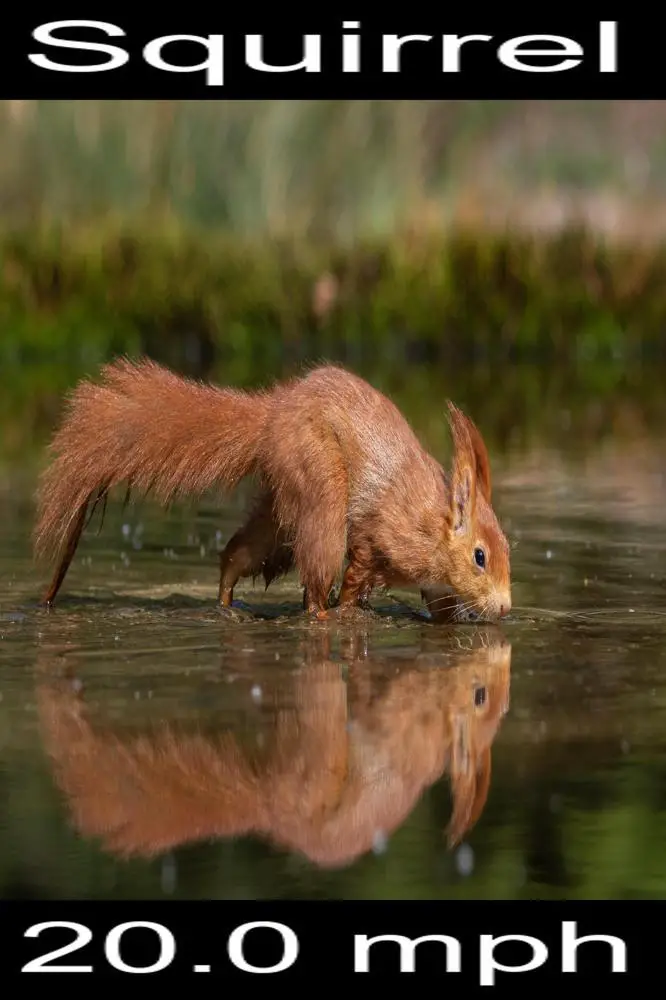
Can the Bichon Frise Run Faster than the Horse?
The Horse can run faster than the Bichon Frise.
The average running speed of the Bichon Frise is 16.6 mph, while the average running speed of the Horse is 55.0 mph.

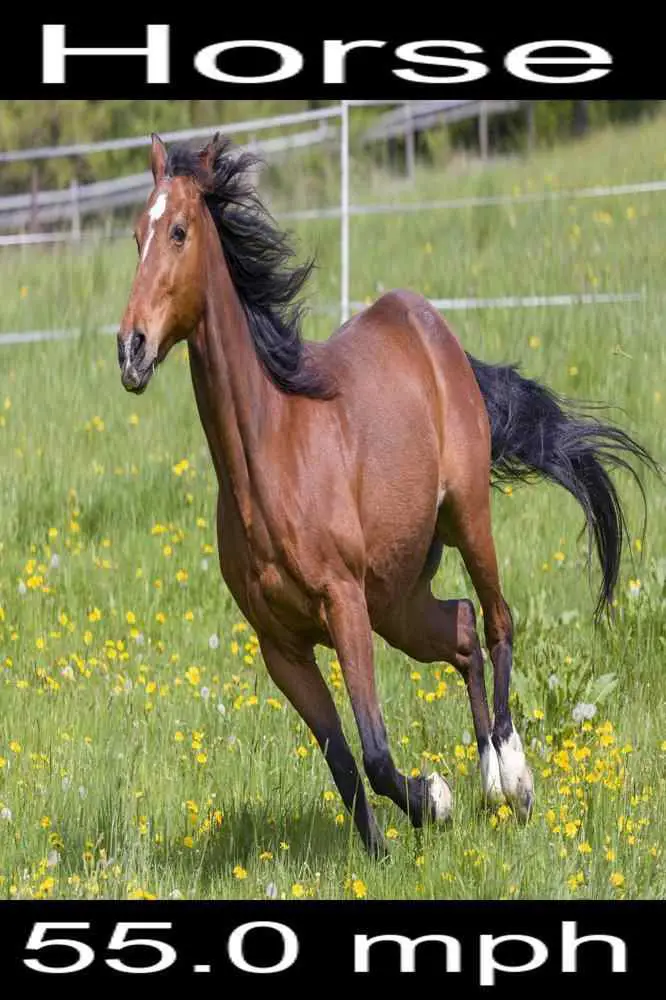
Can the Bichon Frise Run Faster than the Jackrabbit?
The Jackrabbit can run faster than the Bichon Frise.
The average running speed of the Bichon Frise is 16.6 mph, while the average running speed of the Jackrabbit is 45.0 mph.

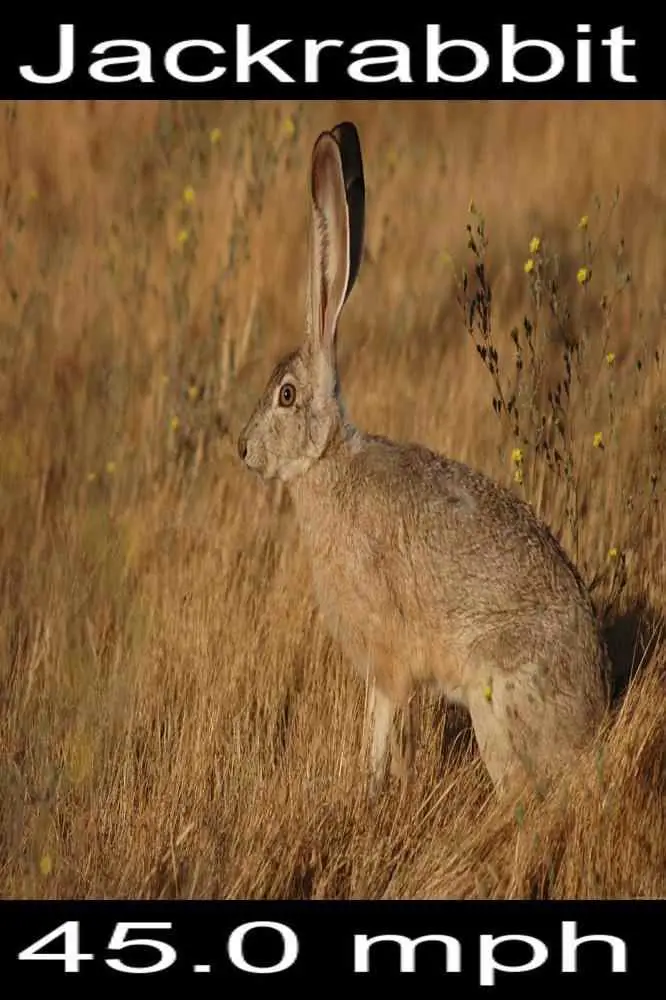
Can the Bichon Frise Run Faster than the Deer?
The Deer can run faster than the Bichon Frise.
The average running speed of the Bichon Frise is 16.6 mph, while the average running speed of the Deer is 30.0 mph.

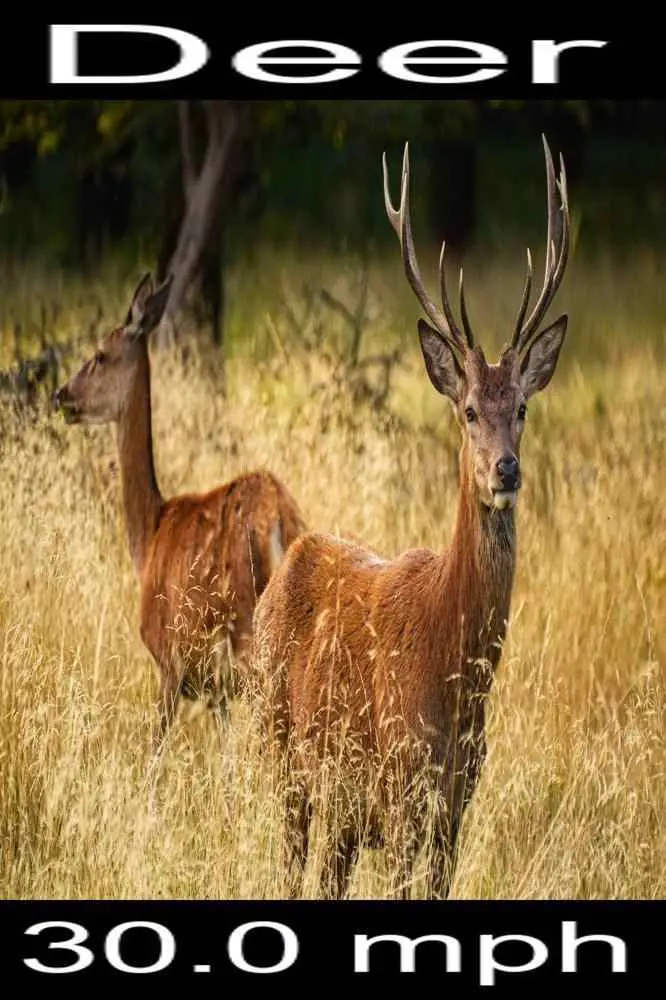
Can the Bichon Frise Run Faster than the Wolf?
The Wolf can run faster than the Bichon Frise.
The average running speed of the Bichon Frise is 16.6 mph, while the average running speed of the Wolf is 37.0 mph.

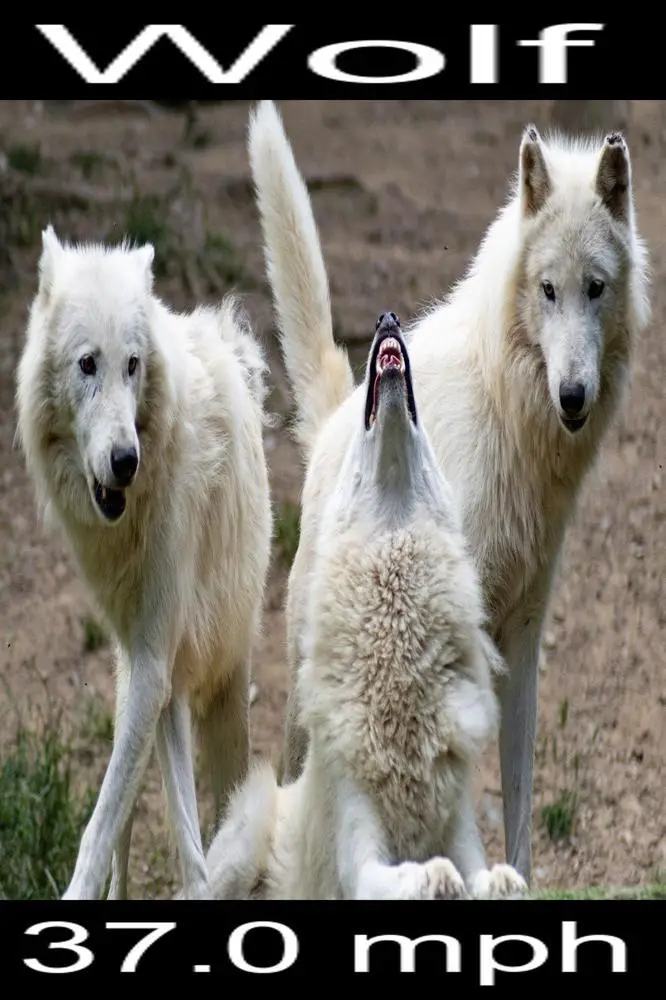
Can the Bichon Frise Run Faster than the Red Fox?
The Red Fox can run faster than the Bichon Frise.
The average running speed of the Bichon Frise is 16.6 mph, while the average running speed of the Red Fox is 30.0 mph.

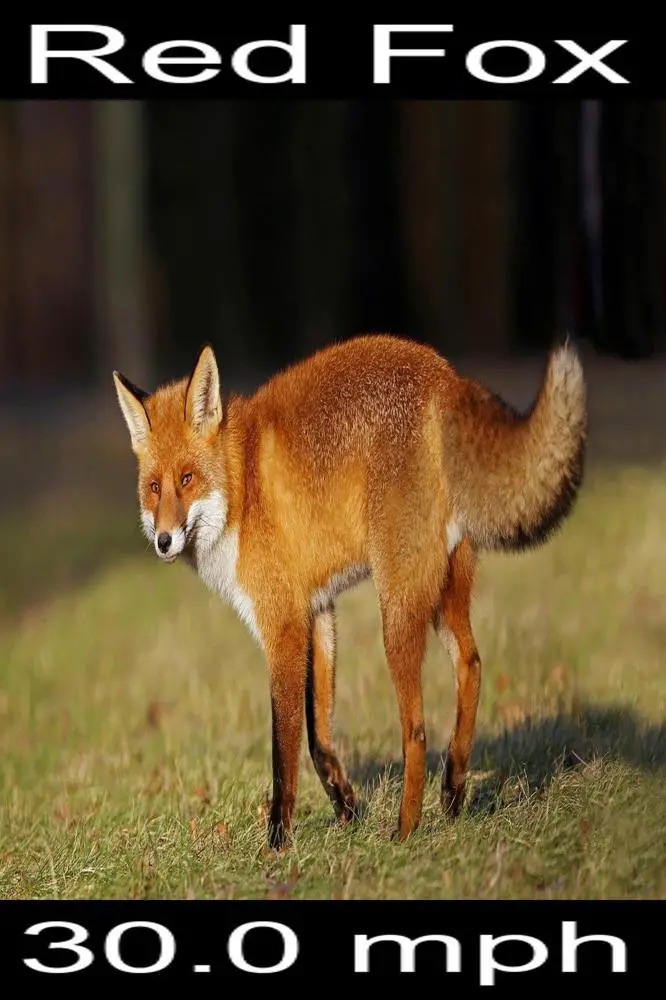
Can the Bichon Frise Run Faster than the Gray Fox?
The Gray Fox can run faster than the Bichon Frise.
The average running speed of the Bichon Frise is 16.6 mph, while the average running speed of the Gray Fox is 42.0 mph.

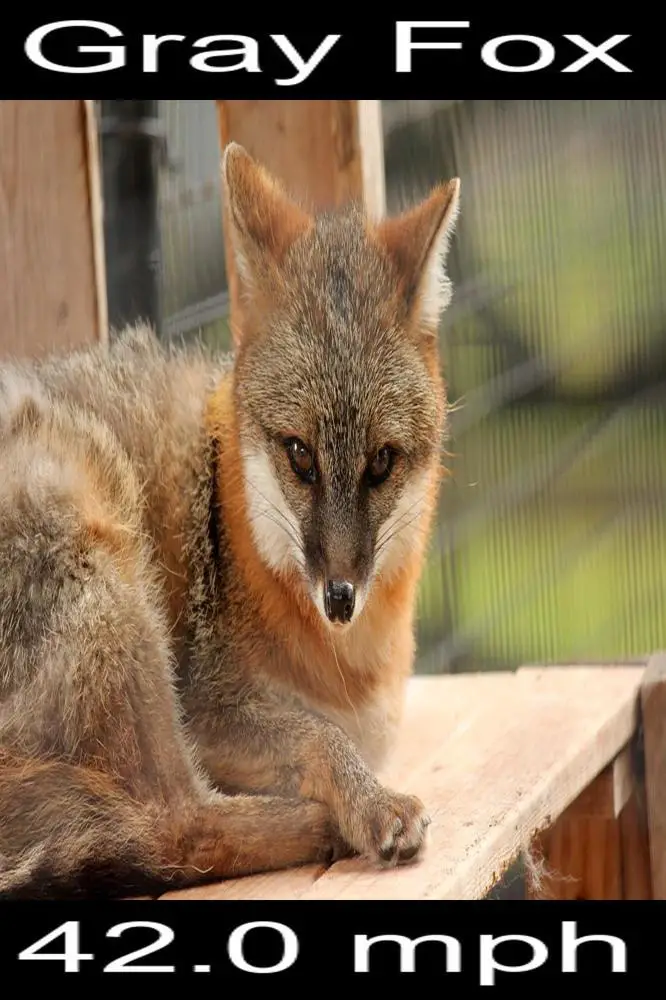
Can the Bichon Frise Run Faster than the Grizzly Bear?
The Grizzly Bear can run faster than the Bichon Frise.
The average running speed of the Bichon Frise is 16.6 mph, while the average running speed of the Grizzly Bear is 35.0 mph.

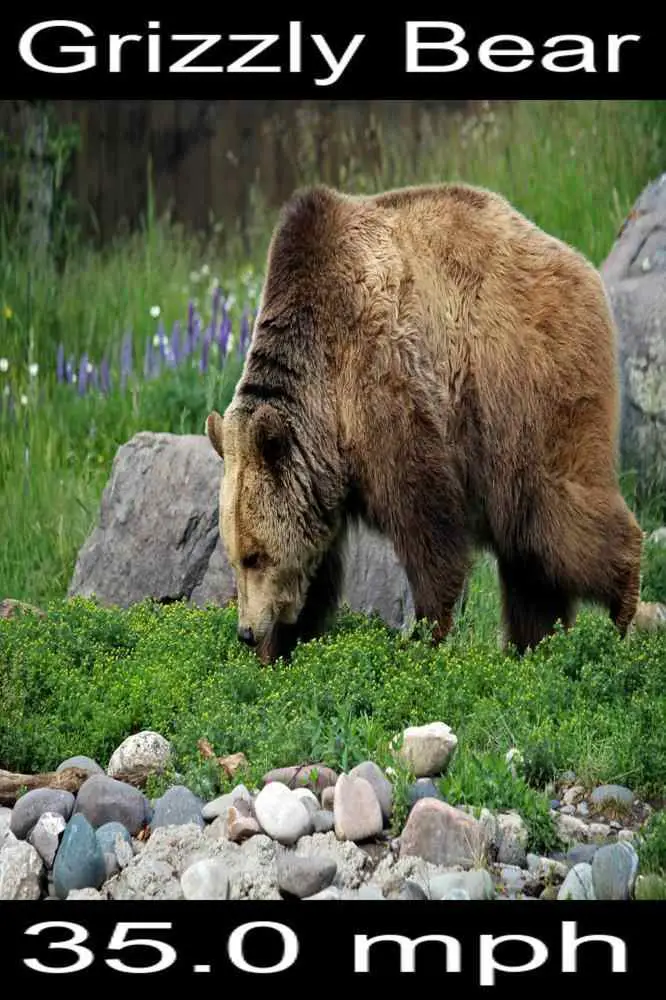
Can the Bichon Frise Run Faster than the North American Black Bear?
The North American Black Bear can run faster than the Bichon Frise.
The average running speed of the Bichon Frise is 16.6 mph, while the average running speed of the North American Black Bear is 30.0 mph.

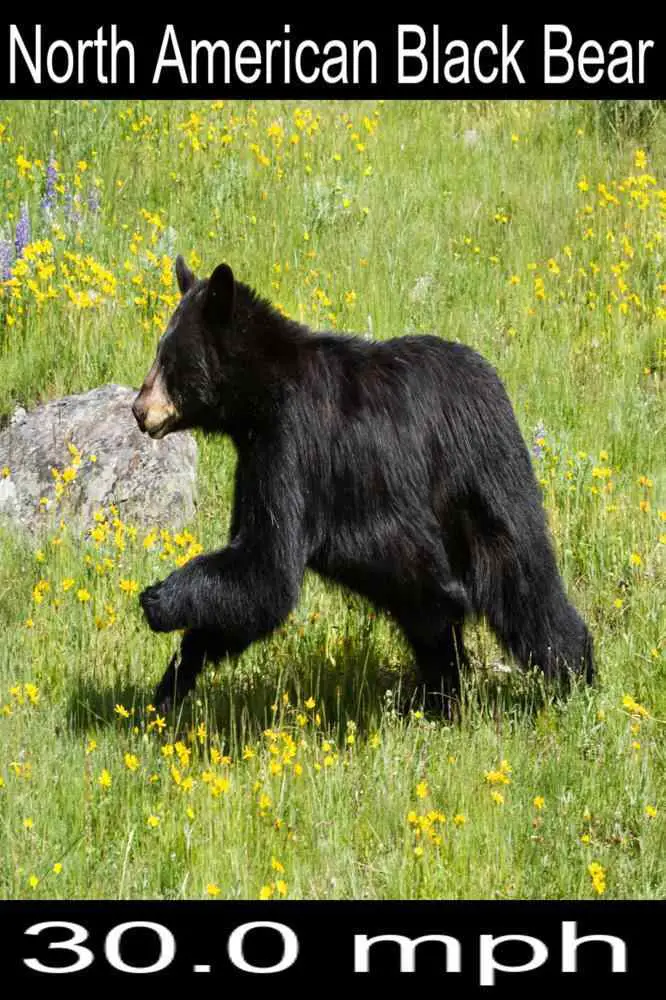
How to Make Your Bichon Frise Run Fast
If you want your Bichon Frise to run fast, make sure your Bichon Frise is in good health, and that you have conditioned and trained your Bichon Frise for running. Here at the things you can do to make your Bichon Frise run fast:
- Make sure your Bichon Frise is in good health: Take them for regular veterinarian checks, feed them a good diet. This will ensure that your Bichon Frise is in good health necessary for running.
- Well-formed bones: make sure the bones of your Bichon Frise are well-formed before making your Bichon Frise run. Importantly, do not run with a puppy because you can damage a puppy`s joint and bone structure through the high impact of running on their joints.
- Condition your Bichon Frise for running: Before getting your Bichon Frise into serious running, first condition your Bichon Frise from running. First, start slow by exercising your Bichon Frise regularly. Also, play fetch with your Bichon Frise, take your Bichon Frise for regular walks. All these will make your Bichon Frise very fit for running.
- Make sure your Bichon Frise is not overweight: Learn about how you can monitor your Bichon Frise`s growth to prevent your Bichon Frise from being overweight.
Get your Bichon Frise a dog fitness tracker to monitor its activity and running performance.
The dog fitness tracker that we recommend for the Bichon Frise is the Whistle GPS Health and Fitness Tracker
. This tracker is packed with other useful features in addition to fitness tracking. The tracker can also monitor your Bichon Frise`s nutrition and sleep. It can let you know if your Bichon Frise is scratching or licking itself too much.Learn more about the Whistle GPS Health and Fitness Tracker here on Amazon.
Conclusion on How Fast the Bichon Frise Can Run
Note that the AKC`s speed test for dogs upon which this article is based does not pit dogs against each other in races as it is done in human races. Rather, a dog runs the race by chasing a lure, and the dog`s speed is recorded, and compared to the speed of other dogs.
Furthermore, the AKC speed test leverages the fact that dogs like to chase things. However, some dog breeds have a higher tendency to chase things than some other dog breeds. Breeds such as greyhounds, afghan hounds, and whippets are naturally wired to chase objects. Therefore, these breeds tend to excel in sports like the AKC speed tests.
Finally, running is a good exercise for dogs. Also, exercise is good for your dog`s health. Exercise will make your Bichon Frise live long. However, if you want to get your dog into running without getting your dog injured, make sure that your dog has grown past the puppy state, with well-formed bones, before you get your dog into running.
